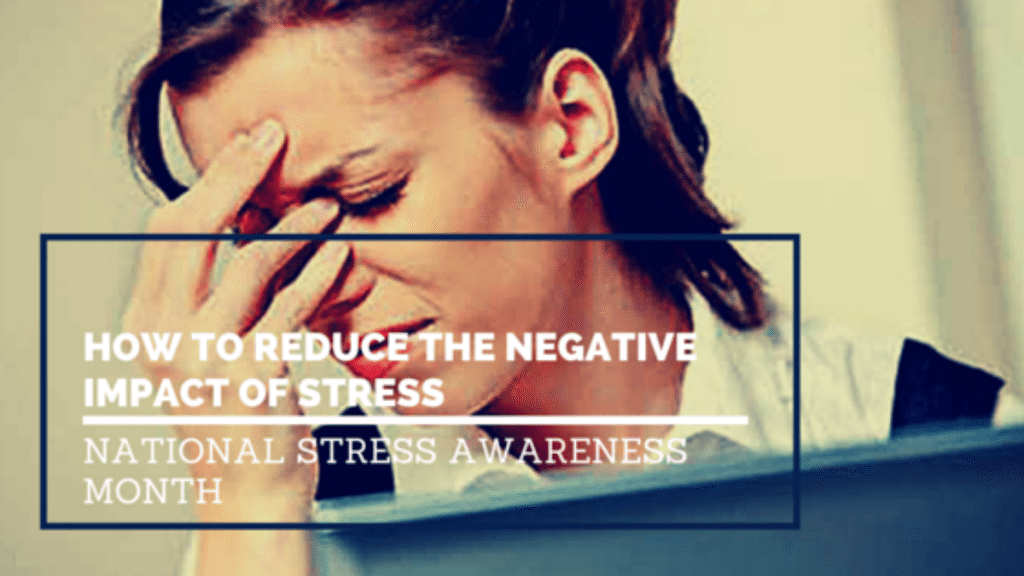How Nutrition Helps Reduce The Negative Impact of Stress on Your Body
April is National Stress Awareness Month, a time for health professionals and really everyone to focus on the impact stress has on our lives and openly discuss solutions for reducing stress, and the impact stress has on our health.
According to The American Institute of Stress, 44% of Americans feel more stressed than they did 5 years ago. 1 in 5 Americans experience “Extreme Stress” (shaking, heart palpitations, depression). Stress increases your risk of heart disease, heart attack, and stroke, and 40% of stressed people overeat or eat unhealthy foods.
It’s a fact, stress and nutrition have always been linked. In stressful situations, food can give us a sense of control and satisfaction, but what if we are choosing unhealthy foods? How does that impact our stress levels and health?
Your body produces adrenaline during times of intense stress. Adrenaline will cause your heart to beat faster and give you brief energy. However, that burst of energy will also cause a drop in your blood-sugar levels. This is what causes those hunger cravings and also lead to tiredness, mood swings, and decreased concentration.
Most individuals who are extremely stressed, don’t have time to incorporate a healthy diet into their busy lifestyles. At the same time, stress has been found to increase our cravings of foods that are high in fat and sugars.
Nutrition Can Aid In Minimizing Stress
While your body craves food during times of stress, it’s important to fuel it with healthy foods. Providing your body with the correct amounts of vitamins, minerals, and antioxidants can help protect your body from some of the physiological damage that stress causes.
Does Stress Really Kill?
Recent research has shown that when your body is under extreme amounts of stress, it uses up valuable resources until they are depleted. It’s your job to replenish nutrients through the foods that you consume and supplementation. Vitamins, minerals, and antioxidants are essential and necessary for a healthy body, especially when your body is stressed. Antioxidants act as your first line of defense, protecting the cells in every part of your body from some of the damage that chronic stress can cause. Minerals also fuel your body and play many roles, from regulating body chemistry to building strong bones.
From a physiological perspective, chronic stress leads to free radical production and oxidation, amongst other things. Antioxidants are literally ANTI-oxidation, so making sure you have enough vitamins, minerals, and antioxidants in your body on a daily basis can protect your cells from the damage that chronic stress can cause at a cellular level.
Medical literature now links over 70 degenerative diseases to chronic oxidation, so if you’re chronically stressed and producing chronic free radical and oxidative damage, your risk factors for various diseases increases.
However, if you have enough breadth of antioxidants in your system, they can help neutralize free radicals and oxidation, which can greatly influence and protect your health.
Summing It Up
At the end of the day, stress is a part of life. That said, by taking preventive measures daily, you can reduce the impact and physiological damage from stress through proper diet, exercise, and vitamin/mineral/antioxidant supplementation.
To Changing Healthcare Through Prevention!®
This entry was posted in Healthcare, Lifestyle, Supplements and tagged stress, National Stress Awareness Month, pharmaceutical grade supplements, minerals, supplements, vitamins, antioxidants on April 23, 2015 by David Block.

